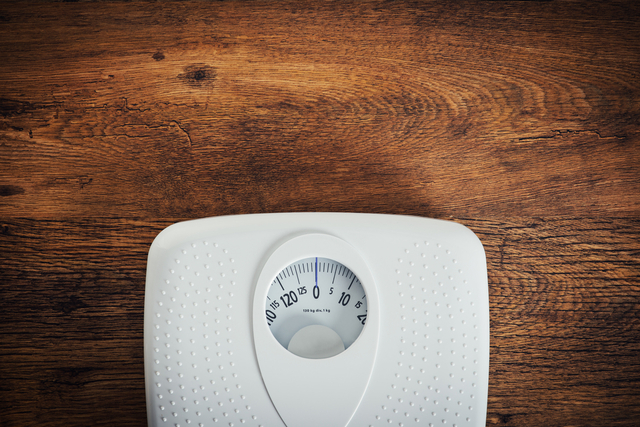Make these smart choices to achieve your ideal weight
A healthy lifestyle involves choices – and the facts are that the choices you make today is the life you will lead tomorrow.
We are in the midst of a series with respect to Weight Loss Strategies – and quite simply making healthy choices is the chief agent to success. The good news is that you are responsible for making your choices … the downside is that there are a number of hidden land mines that can prevent us from achieving our ideal weight. This series is to help in making smarter choices every day, adopting healthy lifestyle changes while developing new eating habits. You’ll not only lose weight – you will be healthier and you’ll also have more energy.
While I have said it before it bears repeating: being overweight raises our risk for a number of chronic health issues including diabetes, heart disease, fatty liver, osteoarthritis, elevated cholesterol, asthma, sleep apnea, gallstones and some cancers. And also, studies show that being overweight can also impact our mental, social and emotional well-being. Here are some additional strategies in this series for healthy weight-loss success.
Dr. Nina’s What You Need To Know About Weight Loss Strategies
Portion control
In addition to choosing nutritious foods that are low in calories and fat, how much we eat is critical to any weight loss plan. Portion control is the understanding of how much a serving size of food is and how many calories or how much food energy a serving contains. This is important because research has shown that our portions are exploding compared to 20 years ago. The odds (or serving sizes) are stacked against us!
Some strategies to help us watch our portions include: not eating while distracted; being aware of super-sized portions at fast food and sit-down restaurants; and making sure to put fiber-filled veggies on our plates so we feel full.
Don’t hang out in the kitchen
Over the past several years, researchers have been looking at how our environment affects what and how much we decide to put into our mouth. And what they have found is that when we spend time in our kitchens, it is more likely that we will consume more. Having snacks and food right at our fingertips makes eating effortless and likely we will do so even when we are not hungry. Additionally, today, our kitchens are often equipped with televisions, computers and other technologies that allow us to eat, munch and graze while distracted.
Try hanging out in the family room instead. If we have to get up from a comfy couch, go up or down a flight of stairs, or miss a part of our favorite show to grab something to eat, it becomes less convenient and more likely we will do so only when actually hungry.
Pack your lunch
In addition to being lighter on our wallets, bringing our lunch to school or work can also be lighter on the number of calories, fat and salt we consume. Packing our lunch in advance, as opposed to ordering when hungry, improves the chances that we will eat more nutritiously. For example, we may be able to avoid the added condiments on ready-made sandwiches (e.g. mayonnaise) or be less likely to consume fried foods (few of us like to eat soggy microwaved French fries).
Smart snacking
Eating in between meals can help suppress hunger pangs, boost our energy and help our bodies get the right amount of nutrients. However, careless snacking out of habit, boredom, stress or frustration can also be a landmine that poses serious threats to our waistlines. Many easy, grab-and-go snacks are high in calories, fat and salt, providing little to no nutritional value and creating a battle of the bulge.
But it does not have to be that way. When mindful snacking is kept less than 200 calories and snacks are rich in protein, fiber and other nutrients, it can be a tool to maintain an overall healthy lifestyle. And while it may take a little planning, there are a number of fun, tasty and good-for-us snack options.
Unplugging
Our computer, television and smart phones have bright screens that can interfere with our body’s melatonin production. Melatonin is a sleep hormone that rises when it is dark and suppressed by sunlight and artificial lights. Using these items around bedtime, as a result, may make it more difficult to fall asleep. As we know, poor sleep can elevate our hunger hormone ghrelin and impair rational decision-making when it comes to what we put in our mouths.
Fill up on fiber
Fiber is a type of carbohydrate that is not digested. Unlike other carbohydrates that are broken down into sugar molecules, fiber is not broken down and passes from our mouth to the porcelain bowel, intact. And because it is not absorbed from our intestines, it cannot add calories.
Additionally, chewing celery and carrots requires time and energy. It takes your stomach 20 minutes to signal to our brain that we are full and to “stop eating!” As a result, we are affording our body the opportunity to register that we are no longer hungry and are “buying time.” Additionally, we are getting more bang for our buck. Fiber adds bulk and makes a meal feel larger and linger longer.
The American Dietetic Association recommends that between the ages of 19 to 50, women should consume at least 25 grams of fiber daily and men 38 grams daily.
Understanding how to wisely make (and manage) smart choices is what this series is about in order to help support smart weight loss. Choosing to find time to exercise, to make wise choices of a healthy eating plan, choosing more fiber, setting realistic goals, maintaining good sleep hygiene is within our power of choice. You’ve got this!! Make good choices!
This article is for general information only and should not be used for the diagnosis or treatment of medical conditions and cannot substitute for the advice from your medical professional. Dr. Nina has used all reasonable care in compiling the current information but it may not apply to you and your symptoms. Always consult your doctor or other health care professional for diagnosis and treatment of medical conditions or questions.




























